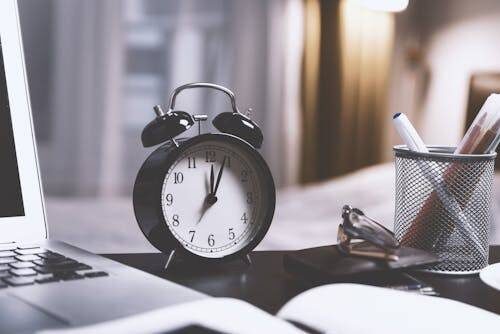Don’t Do Multiple Task in One Part of the Day. If you are trying to accomplish something, then don’t break it into several pieces! Tasks are the building blocks of the task management system. Break them up and the task becomes easier to accomplish.
Think of your phone as your “to do” list. If you try to do everything at once, you may find that you’re overwhelmed with the many tasks you have to accomplish.

Here are some important facts by which you can prevent multiple tasks at one time and achieve immense productivity.
1. Avoid All at Once:
Don’t do it all at once. if you want to check your email, perform other functions, or surf the web, do those things in order. Don’t do all of it at once.
If it takes more than 10 minutes to do one task, then put that item into the “done” pile and move on to the next item. Your list will stay shorter and neater.
2. Task More than Once:
Don’t do the same task more than once. Each item on your list should have a purpose. If you’re checking your email, perform an email to check regularly.
If you have to make a presentation, give yourself intervals throughout the presentation so that you’re not spending too much time on the same task.
3. Avoid Multiple tasks:
Don’t do multiple tasks at the same time. You may have noticed that I wrote “don’t” in the second bullet point above. That’s because there is a big temptation to do just that.
Rather than spend five minutes doing a five task presentation, choose a topic, create a PowerPoint presentation, then deliver a PowerPoint. You’ve just wasted five minutes of your time.
4. Avoid Multiple checklists:
Don’t do multiple checklists. You know how important your checklists are. They help you keep on track and find out what needs to be done.
So don’t do them more than once. If you need to double-check something, write it down. Don’t cross them off.
5. Avoid Too many events:
Don’t schedule too many events in a day. When you set up a day, make sure that it’s not just a random schedule filled with nothing but tasks you want to get done.
If you want to focus on your schedule, you need to break your activities up into smaller pieces.
6. Avoid Excess works:
Don’t do anything at all in excess. The less activity you have, the less time you’ll have to think. Don’t spend more time working on something than you have to.
If you need to do it, take a few minutes, then go back and finish it later. If you have a lot of activity, that probably means you didn’t sit down to really think about what you had to do.
Break your activities down into small pieces and you’ll have more free time.
7. Break-up your Work:
When you’re setting up your day, break up your work so that you have a little time for yourself. You’ll be amazed at how much time you actually have to devote to your own work.
Don’t do multiple tasks in a day, because that won’t give you any time for yourself. Take five minutes and make sure that you take the five minutes to really focus on the task at hand and you’ll wonder how you did it without the distractions!
8. Take advantage of reminders:
Email, text, or a google calendar reminder can be useful reminders for getting more done. If you multitask a lot, you may be tempted to just pick up the phone and call people, but that rarely helps you focus.
If there is a specific item that you have to do, write it down, so that you can focus on completing that task when it’s done.
That’s better than picking up the phone and calling people that will inevitably end up being non-relevant to whatever it is you were supposed to be talking about.
Final Thoughts:
Sure, your brain works differently when you do different tasks at different times. However, it’s usually best not to do multiple tasks at once. It can lead to poor productivity, as well as burnout. Focus on one task at a time and let the brain do its thing.
If you’ve tried these tips and you’re still struggling with your productivity, then perhaps you’re under a lot of stress. Work out a system for yourself that you can live with.
Don’t multitask. If you feel like you’re overburdening yourself, consider making a few simple changes so that you’re not so overwhelmed.
Also, take note of which habits are causing you to underperform so that you can avoid them in the future. Eventually, you’ll be more able to multi-task without being at risk for burnout.
Featured photo credit – pexels




